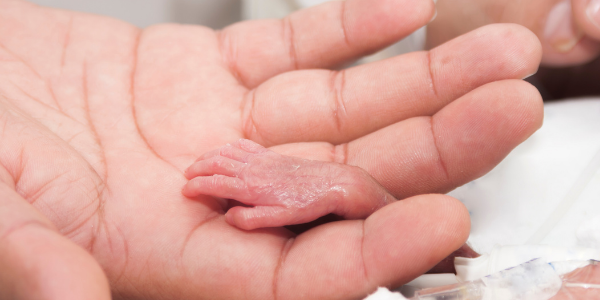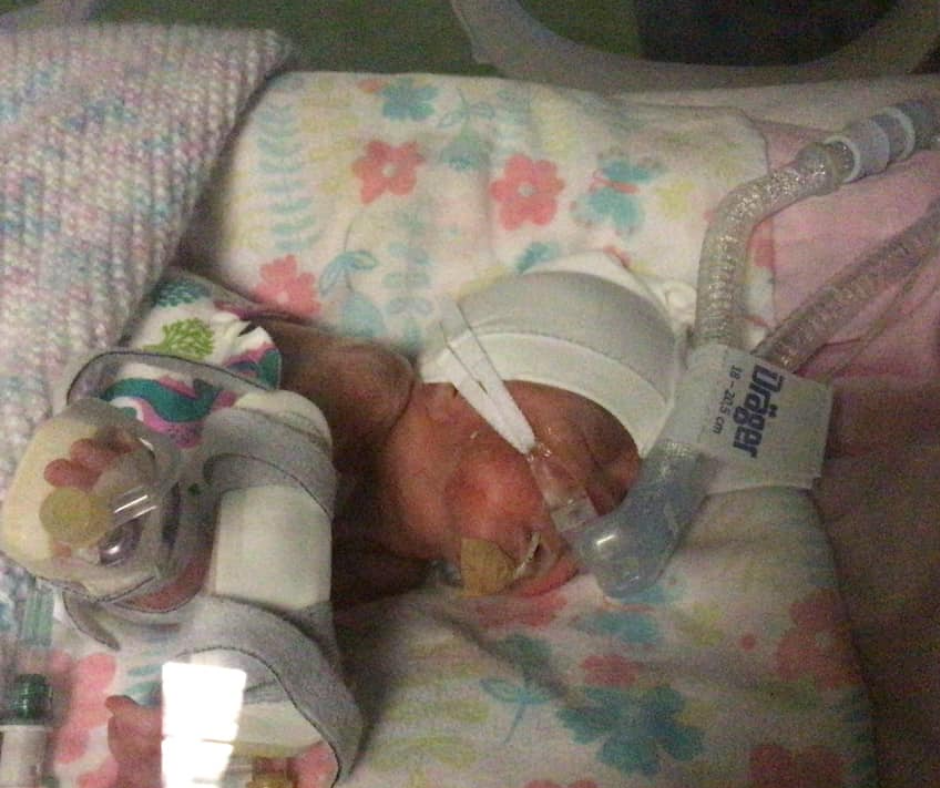

Today is World Prematurity Day 2021.
For the parents in our online parenting community, World Prematurity Day is an important event each year, for so many reasons. If you're wondering what this day is all about, and want to learn more about prematurity, we can help.
For every 13 babies born in the UK, 1 is premature, meaning that prematurity isn't all too uncommon. That said, so many people are completely unaware of the facts behind premature birth, losing out on awareness that could help them to support their own friends and loved ones if they find themselves having a premature baby. Knowledge is power, and we hope that this gives you the power to support others.
What is World Prematurity Day?
According to BLISS charity, 'World Prematurity Day (17 November 2021) is a global movement to raise awareness of premature birth and the sometimes devastating impact it can have on families.
On this day Bliss comes together with partners from around the world to talk about premature birth in our countries and to raise awareness about the hurdles babies and parents face, and overcome, every single day.'
What exactly is 'prematurity'?
Prematurity means that a baby has arrived prematurely - early. By early, we mean before the 37th week of pregnancy, as the 37th week is considered 'term'. The earlier a baby arrives, the more intervention a baby tends to need as soon as they are born as their lungs, brain and other organs have had less time to develop in their mummy's womb. You can read more on the NHS website here.
Babies born before 28 weeks are 'extremely premature', between 28 and 32 weeks are 'very premature', and from 32 and just before 37 weeks are 'moderately to late premature'.
View this post on Instagram
What causes prematurity?
Good question! There is no clear-cut answer here, quite simply. Babies are born prematurely for so many different reasons. The World Health Organisaton (WHO) has an informative list;
- Multiple pregnancy
- Infection
- Chronic diabetes or high blood pressure, often due to pre-eclampsia
- Possible genetic influences - women with connective tissue disorders such as Ehlers Danlos Syndrome may be higher risk.
- Premature rupture of membranes
- A weakness of the cervix
Very often, however, a cause isn't identified, especially in cases of spontanteous premature labour. This can be especially difficult for parents who have had a premature baby, as there can be concerns about it happening again in future. If this is something you are worried about, definitely sit and have a chat with your consultant and midwife.
What can be done for premature babies these days?
Medical advances mean that, if your baby is born prematurely, there are so many more things that can be done to help them to survive and thrive than in the past.
With babies surviving as early as 22 weeks in the UK, there has been a lot of public debate about the definition of 'viability' and how early doctors should intervene. According to BPAS (British Pregnancy Advisory Service), between 22 weeks and 25 weeks doctors are encouraged to base their decision on whether to resuscitate if needed, and intervene with life support, on the condition of the baby, parental wishes, and their own 'clinical judgement'. Heartbreakingly, this means that some extremely premature babies don't make it, but more and more are surviving with each passing year thanks to the incredible medical and scientific advances.
How early was the most premature baby?
Curtis Means was recently in the headlines as the world's most premature baby, born at a shocking 21 weeks and 1 day (that is almost 19 weeks early) in Birmingham, Alabama in the USA. His twin sister C'Aysa passed away after fighting for a day, much to the heartache of her parents, but her brother Curtis shocked his doctors and family by continuing to survive. He is now 16 months old!
He spent 275 days in hospital, is still on supplemental oxygen and needs a feeding tube, but considering his incredibly extreme prematurity, he is considered to be making astonishing progress by doctors around the world. His mum has told the media;
'“Being able to finally take Curtis home and surprise my older children with their younger brother is a moment I will always remember."
Curtis Means, now 16 months, is the world's most premature baby to survive.
— BBC World Service (@bbcworldservice) November 12, 2021
He weighed less than a football at birth and spent three months on a ventilator.
What does Curtis's "really exceptional" survival mean for other premature babies like him?https://t.co/oQZ9cZAXix
Real-life prematurity stories
Our online parenting community is a great place to seek our other 'preemie parents'. Many of them have also shared their stories with us, and we hope that these help those of you who are either at risk of having a premature baby, or who have just had a premature baby and are understandably very worried about 'what next'. Here are our top picks;
Mummy Sarah Vidal shared her story in our online community group;
"This is my little girl Shelby born 28th October at 25+1 weighing 1lb 12oz. We’re still very new to this journey, but I have to say the neonatal teams are true angels. Everyday my little girl grows stronger and can’t wait for the day when we can finally bring her home. She has already taught me how strong these little miracles are!"

The team are rooting for Shelby - we hope that she continues to smash her NICU milestones and is discharged home quickly. Sarah, we send you all of our love and strength at what must be a very frightening time for you and your family. We're so blessed to have access to the medical interventions for premature babies that we do today, and we hope that more and more babies continue to beat the odds to go home with their mummies and daddies.
If you found this useful, we think you'll like...


.png)







